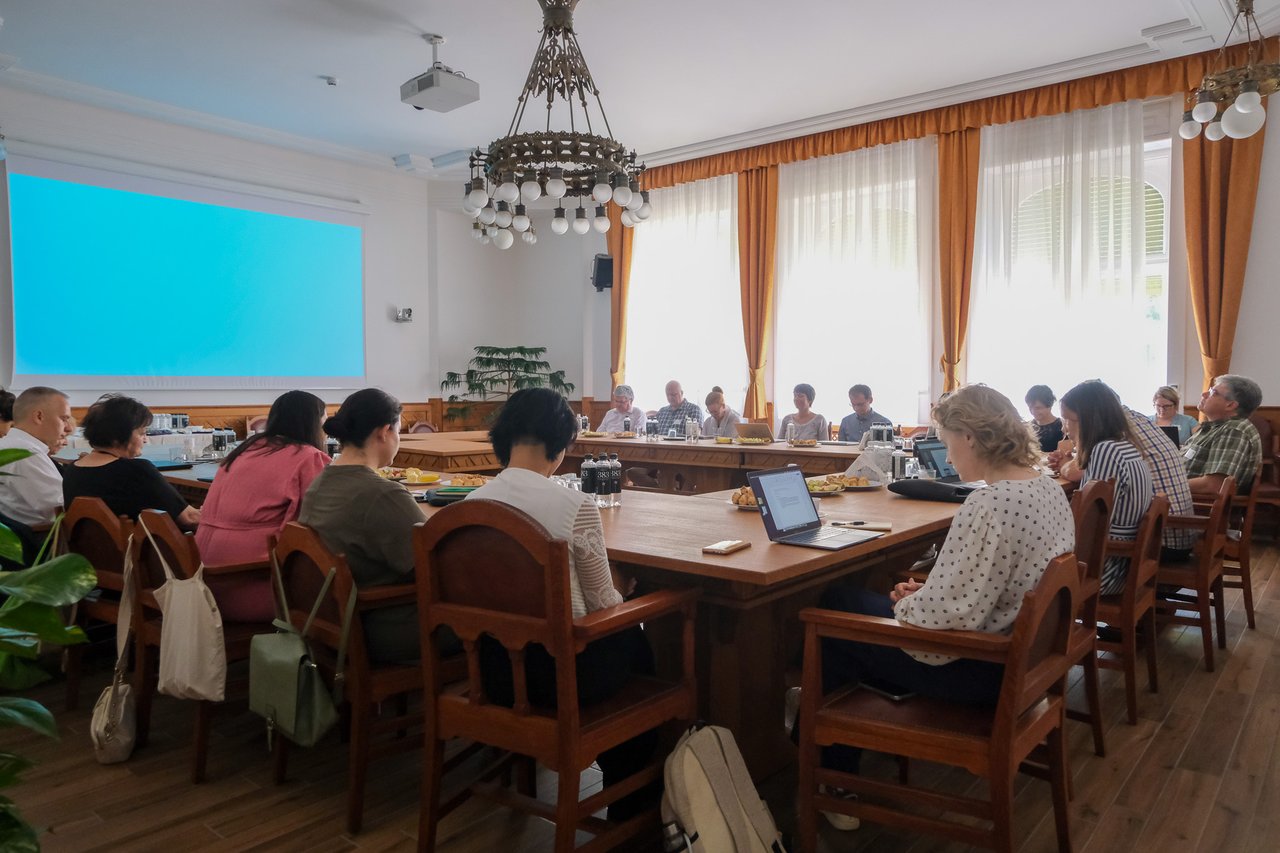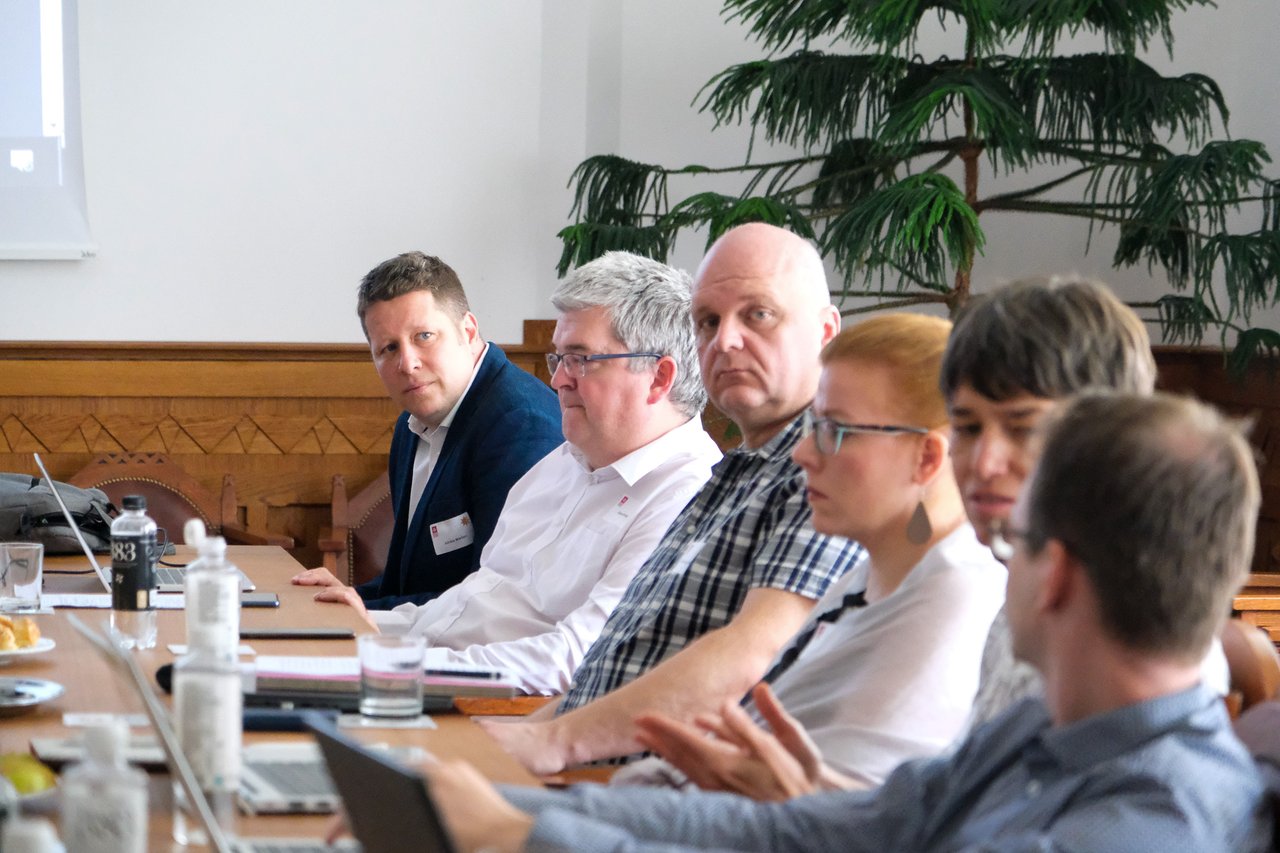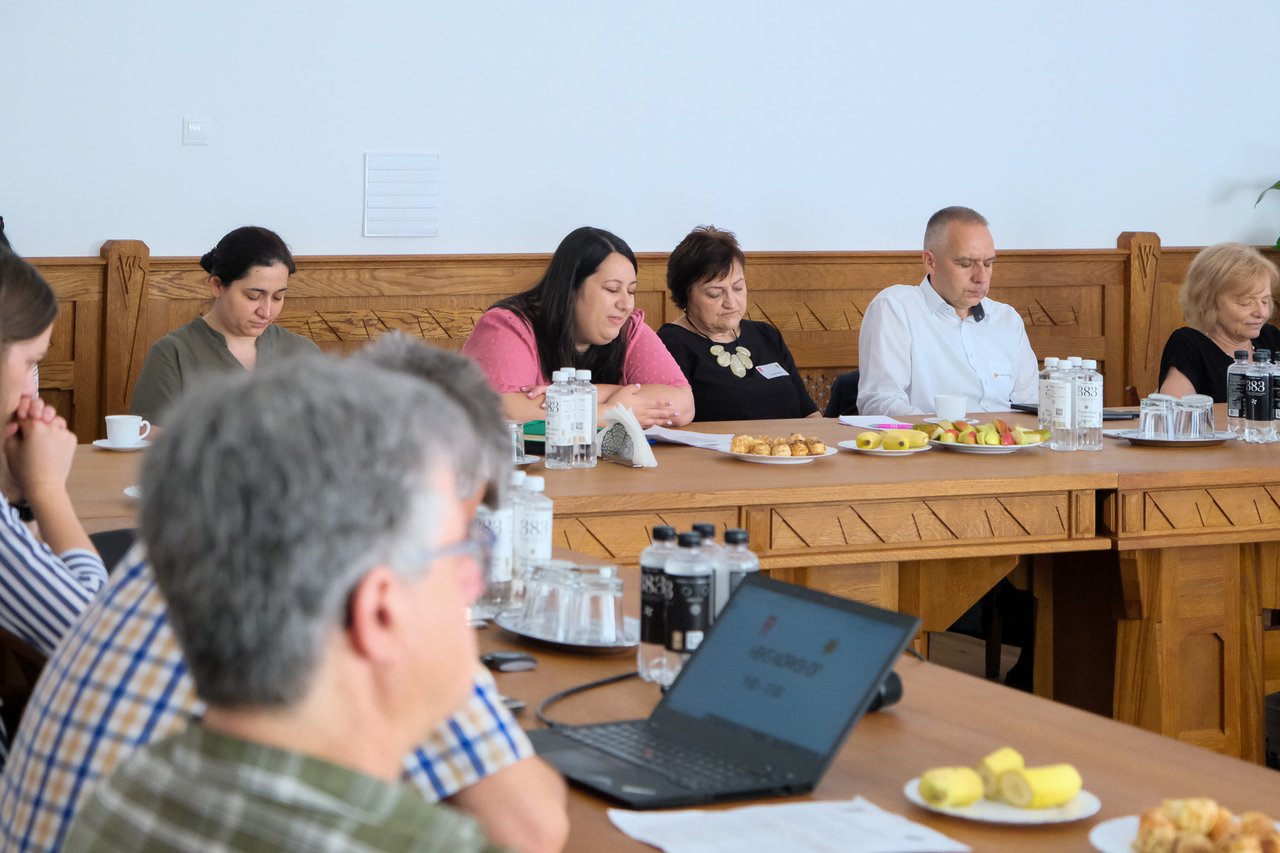On June 19th, representatives from Swiss Church Aid (HEKS), the Reformed Church in Hungary (RCH), the Hungarian Reformed Church Aid (HRCA), the Diaconia and Educational Service met to present and discuss two projects implemented in cooperation. The projects assessed included the “Integration of Roma into Church and Society” of the Roma Ministry and the “Promotion of Life Perspectives and Inclusion of Refugees in Hungary” from the Refugee Ministry. The workshop included input on the social and political landscape in Hungary, ecclesial discussions from both the Swiss Protestant Church and the Diaconia of the Reformed Church in Hungary, the project evaluation presentations, and a discussion on the next phase of cooperation between HEKS and the RCH.

History of Cooperation Between HEKS and the RCH
The Reformed Church in Hungary and HEKS have maintained a decades-long partnership. Within its strategic church cooperation framework, HEKS has supported several different projects and fields concerning marginalized and vulnerable groups, such as the Roma Ministry and the Refugee Ministry. Cooperation on the Roma inclusion program began in 2013 and, as of the latest project phase, ending in 2024 is in its third phase. Regarding the Refugee Ministry, HEKS has supported refugee integration programs since 2017, and the evaluation of this program marks the closure of the second phase.
The Growth of God’s Radical Love
The workshop began with biblical input, including a devotional from Szabina Sztojka, who shared an excerpt from Mark 4:26-34. Sztojka used the parable of the mustard seed to emphasize how important patience is in working with vulnerable or marginalized populations. As in the parable, the mustard seed represents the kingdom of God, and “we want to see the peace, love, and justice of God's kingdom here on earth, we see this vision, and we want it now, and we get frustrated when we cannot control this” Sztojka says. She continued by saying that we can see this in our work as well and that, in some cases, we must accept that we cannot control the growth of the seed, the direction, the speed, or the result, and God calls us to this patience. Szotjka recalled from the parable that “the mustard seed is radical in its growth, and so is God’s love, also the seed is small, the growth of God’s radical love starts small from insignificant places, and we must remember this.”
Hungary’s Socioeconomic and Political Background
Following the devotional, attendees received a presentation on Hungary's social and political realities from Júlia Berecz, the Ecumenical Secretary in the Synod Office of the RCH. In outlining the political and socioeconomic landscape, the presentation highlighted the most pressing concerns of the Hungarian populous, such as the cost of living, health, and education. Additionally, the presentation provided insight into the mindset of Hungarians, with many rating immigration as an important issue facing the EU and responding that ethnic discrimination is quite prevalent in society. The presentation provided a holistic background to frame the day’s discussions regarding the projects designed for two vulnerable populations in Hungarian society.

Changes in the Church: Input from the RCH and Swiss Protestant Church (PCS)
Following the presentation on Hungary, two ecclesial inputs were provided on behalf of the Diaconia of the RCH and the Swiss Protestant Church (PCS). Dr. Károly Czibere, Director of the Diaconia of the RCH and President of the Board of Trustees for the HRCA, introduced several internal changes within the RCH, including the recent election of bishop József Steinbach as the new ministerial president of the Synod of the RCH in April following the resignation of bishop Zoltán Balog and the implementation of a new church constitution framework. Included in the new constitution are revised regulations on election processes and also the statuses of pastors and ministers.
Rev. Martin Burkhard, HEKS program officer for church cooperation, introduced the situation of the Swiss Protestant Church within its own society. Burkhard explained the relation of Swiss churches to society and the implementation of mission in society, saying that churches are “moved by god, committed to people.” To frame the discussion of the day, Burkhard reiterated that the Swiss church remains steadfast in its commitment to social work, even in its domestic context, and “though there are some voices that are not so social,” when refugees arrived, there was immense solidarity. Nevertheless, as Burkhard went on to explain, the Swiss church recognizes there are other demographics of marginalized and vulnerable peoples in need.
Updates from HEKS/EPER
Following the presentations on ecclesial matters, Angela Elminger, the HEKS desk officer for the Easter European Regional Programme, presented the recent updates within HEKS and the new HEKS strategy, which began implementation in 2023 and will extend until 2027. In 2021, HEKS/EPER merged with its sister church organization, Bread for All, and for the last two years, the organization has been striving to blend two thematic areas of development policy and development cooperation. Elminger introduced the transformation model of the HEKS Strategy 2023-2027, including the four priority areas of “Climate justice,” “Right to land and food,” “Inclusion,” and “Flight and migration.” Elminger also informed the workshop of the seven mandates of the PCS: “Development Cooperation,” “Humanitarian Aid,” “Church Cooperation,” “Development and Social Policy Engagement,” “Advocacy,” “Integration,” and “Information and Awareness-Raising.” The background provided in the presentation underscores the importance of the collaboration between the RCH and HEKS in the field of service to marginalized populations while also providing insight into the central principles of each project’s design and church cooperation more broadly.

Roma Ministry Presentation
The project evaluation for the Roma Ministry covered the third phase of the project between 2021-2024 and involved 18 congregations and 13 schools. The evaluation involved field visits to schools and congregations and interviews with project leaders, experts, and stakeholders. The evaluation involved a discussion on the context of both rural, small congregations and large, urban congregations with several common results such as disadvantaged economic situations for Roma peoples, deprivation of children, limited job opportunities, and a lack of social programs. Within Roma families, the most prominent disadvantages include poverty and unemployment, low self-confidence, lack of family support, addiction, lack of identity or rootlessness, and poor mental and physical condition.
Three aspects of the Roma Ministry project are inclusion into society, church, and schools. The model for inclusion into society involves excursions, camps, and activities for kids, mother and toddler groups, workshops and training, children’s performances, community events, volunteering programs, and cultural events. In addition to these, inclusion into the church involves bible lessons, children’s performances within churches, musical worship in group and children’s homes, mindset-shaping trainings, children’s worship, and meeting and training for pastors. The model for inclusion into school involves mentoring, joint events, school visits, financial support, conflict mediation techniques, and afterschool programs.
The evaluation offered several insights into the project successes and lessons learned. For example, activities for kids and youth proved to be a successful way of both social and congregational inclusion of children. However, it was noted that this is a long-term process and to see real results, a project should consider this. Additionally, to address feelings of apathy among families, the evaluation found that programs for kids were successful in building relationships and trust with parents, particularly mothers. An obstacle that the evaluation noted is that shrinking congregations are barriers to Roma inclusion. The evaluation found that with the implementation of the project, school inclusion of Roma and disadvantaged students improved significantly, with cooperation improving and children responding they enjoy going to school.
Refugee Ministry Presentation
The Refugee Ministry presented its evaluation of the HEKS-initiated “Promotion of Life Perspective and Inclusion of Refugees in Hungary” project covering the period between 2021-2024. The primary objectives of this project were twofold: enhance the HRCA’s commitment, infrastructure, and capacity for refugee and migration inclusion and the sensitization of church members, partners, and the wider public on refugees in Hungary. The project contained four key components: integration of refugee children into the Hungarian school system, Adult education to equip them with necessary skills for life in Hungarian society, provision of social work and practical guidance, and sensitization programs within the church and beyond.
The evaluation included surveys and interviews with clients and staff involved in the project to determine the impact of the various programs involved in the project in assisting with inclusion. The evaluation outlined that among the common challenges refugees and migrants face in Hungary adapting to a new country, employment opportunities and social isolation are among the foremost. As a result of the interview process with clients, the evaluation found that social workers especially provided a strong support system, providing clients with useful information, referrals, and translation and interpretation. A majority of clients responded positively that the Refugee Ministry was impactful in their integration experience. Staff responses highlighted how essential language courses are for equipping clients with the necessary skills to enter the workforce, as well as for the inclusion of children into Hungarian schools.
Discussion and Future Planning
Following the presentations, the representatives of HEKS, RCH, the Roma Ministry, and the Refugee Ministry discussed the evaluations' outcomes and the future of project cooperation. Both projects, the Roma Inclusion Project and the Refugee Ministry, have upcoming project phases planned and seek to continue with the support of HEKS. The next steps include the submission of final project evaluations and drafting a new memorandum of understanding between HEKS and the Reformed Church in Hungary.